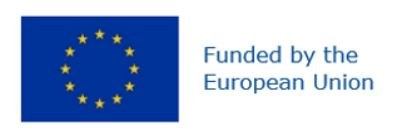Cluster 4 - ELECTRO
Introduction
The ELECTRO project (Electrified conversion of pastic waste into olefins & downstream integration) is a collaboration between 13 beneficiaries and 1 affiliated entity, being Ghent University (BE) as coordinator, AristEng (LU), Aristotelio Panepisitimio Thessalonikis (AUTH, EL), AVGI (BE), Benkei (FR), Borealis (AT), Coolbrook (NL), Engie LABORELEC + CRIGEN (BE-FR), Ghent University Global Campus (KR), Politecnico di Milano (POLIMI, IT), PRYME (BE) and VTT (FI). The total project duration is 4 years, going from 01/09/2022 until 31/08/2026.
Project description
The overall objective of ELECTRO is to demonstrate a revolutionary technology concept that links the waste and petrochemical industry and provides them with a sustainable, low GHG footprint and scalable circular solution for olefin and polyolefin production. The priority for ELECTRO is the plastic waste streams that are currently not recycled but rather either incinerated or dumped to landfill: examples are multilayer plastics, mixed PE/PP/PS, and waste PS. An innovative modular extruder for optimal pre-treatment of plastic waste will be combined with an electrically heated reactor for the catalytic pyrolysis of plastic waste at TRL 7. The main product, plastic waste pyrolysis oil, will be used as a feed for steam crackers. Steam cracking will be electrified in the roto-dynamic reactor (RDR), a second novel reactor technology to be demonstrated at TRL 7 in ELECTRO. In the RDR heat transfer is accelerated by an order of magnitude compared to heat transfer rates achieved in the fired heaters used in conventional crackers. And so the RDR has a substantially higher selectivity towards light olefins and improved process efficiency. The light olefins will be further processed into PE and PP, demonstrating the technical feasibility of chemical recycling and the use of plastic waste as a circular carbon feed. This scalable concept will enable strong industrial symbiosis, with the initial LCA showing an 90% GHG reduction compared to today's best available technology (BAT). Given the amount of plastic waste that can be converted, and the market demand for the compounds produced, the impact of ELECTRO will be profound. To further extend the impact of ELECTRO, the global replicability and economic viability of the proposed concept will be demonstrated using waste streams from the Republic of Korea and Indonesia, and a thorough programme will be implemented to train the next generation of waste management engineers and workers.
Objectives
These are the objectives of ELECTRO:
- Demonstrate ELECTRO’s integrated waste to olefin process at TRL 7
- Leverage ELECTRO’s electrified value chain to reduce CO2 emissions by 90%
- Maximize renewable energy use through electrification & grid integration
- Guide ELECTRO’s scalability to economically viable valorization of 200 kta MPW
- Replicability by studying waste streams from different EU countries, Korea and Indonesia & assessing key locations for ELECTRO circular hubs
- Dissemination, learning & training next generation Waste management engineers
- Closing the full cycle by transforming waste back into materials (polyolefins)
Role of Ghent University
Being the project coordinator, Ghent University is involved in the management of the project and also the dissemination, training, exploitation and communication (WP leader for both WPs). Besides, Ghent University also plays a role in all other scientific work packages. In the first work package on the electrified conversion of plastic waste to high-purity pyrolysis oils, Ghent University is involved in the feed screening and characterization, the reactor design, the pretreatment and the catalytic upgrading. In the second work package on the optimized valorization of the hydrocarbon mix, Ghent University is involved in performing fouling tests to benchmark the municipal plastic waste pyrolysis oil. In the third work package on the electrified conversion of the hydrocarbon mix, Ghent University is involved in the model validation & development, providing the cocking model and the feed characterization. In the fourth work package on grid integration, environmental assessment, scalability & replicability, Ghent University is involved the strategy for integration of societal cross-cutting issues.
Website
To be announced
Contact
Prof. Kevin Van Geem
Department of Materials, Textiles en Chemical Engineering
Phone number: +32 9 264 55 97
E-mail
Funding info
Disclaimer
Funded by the European Union. Views and opinions expressed are however those of the author(s) only and do not necessarily reflect those of the European Union or the European Health and Digital Executive Agency (HADEA). Neither the European Union nor the authority can be held responsible for them.

